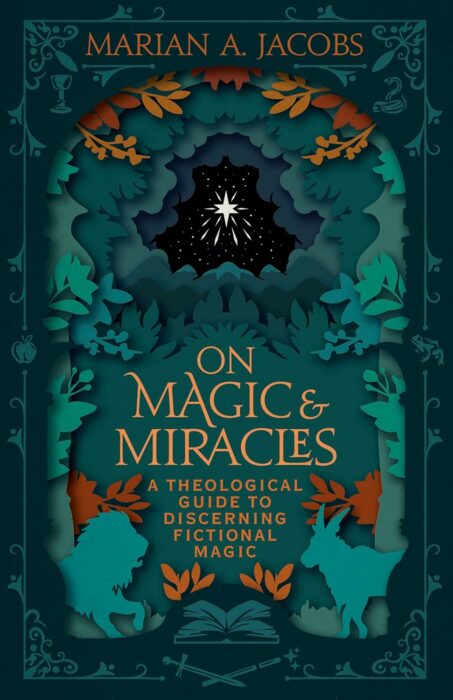269. How Can Fantasy Fans Dispel Occult Darkness? | On Magic and Miracles with Marian A. Jacobs
Podcast: Play in new window | Download (Duration: 59:30 — 55.8MB) | Embed
Magic. The very word feels like a curse to many good Christians. Add other terms like witch or wizard and you’ll get an even more heated cauldron of controversy. We’re no strangers to that at Lorehaven. Now our longtime friend Marian A. Jacobs has created the definitive book treatment of this topic. This week, On Magic and Miracles is cast into the world, and Marian herself Apparates into our studio to compare fictional magic with occult dangers.
Episode sponsors
- Enclave Publishing: The Crier Stone by Lindsey Lewellen
- Realm Makers Expo 2025
- The Company: Kingdom Writers, World Changers
- Above the Circle of Earth by E. Stephen Burnett
Mission update
- New: new Break the Beast review, upcoming The Crier Stone review
- Subscribe free to rebooted emails and join the Lorehaven Guild
 Backstory: Marian A. Jacobs
Backstory: Marian A. Jacobs
Marian A. Jacobs is passionate about writing fantasy, science fiction, and Christian story ethics for the edification of the Church and the glory of God. She and her husband have three children. When not writing, Marian spends time serving on her church’s worship team, watching movies, listening to audiobooks, and working on her seminary degree.
1. What in the actual pagan occult … ?
- Big topic here at Lorehaven: what God in the Bible really forbids and why!
- Christians may miss this by confusing actual evil magic with fictional magic.
- Or we may dismiss occult and fictional magic alike by saying “It’s not real.”
- Yet occult practices are real and may even have limited demonic effects.
- Former occult followers testify about this and their eventual life ruin.
- This idolatry and suffering led them to renounce Satan and embrace Jesus.
- By the anecdotes (and their plural: data!), fictional magic is rarely at fault.
 2. Why do Christians need fictional magic?
2. Why do Christians need fictional magic?
- Yes, we say need, just like Marian’s chapter 7 says the church needs fantasy!
- Part 2 and chapter 7 mark a welcome turning point in the book’s narrative.
- Having seriously dispelled (not dismissed) the darkness, we find the light.
- This isn’t just “for the kids” either. It’s for all faithful and wise Christians.
- In fact, if you shun fantasy, you’re more likely to treat silly myths as factual.
- Two other chapters focus on literary considerations and discerning stories.
- We love rightful emphasis on biblical discernment: truth over traditions!
3. How can we dispel darkness and seek joy?
- This book balances law and grace, responsibility and spiritual influences.
- Any time Stephen scarcely thought, “Well, what about?”, it got covered.
- Also it’s just fun to read: well-structured, head and heart, fun yet earnest.
- Marian has written often for Lorehaven about real risks in fantasy stories.
- Some fans focus on magic warnings but may miss threats from sensuality.
- Stephen likes to point out that even warnings against magic turn mystical!
- What’s next for Marian, On Magic and Miracles, and worlds beyond this.
Com station
Top question for listeners
- How have you seen people fall into the occult or overcorrect for this?
Next on Fantastical Truth
Today it appears cooler heads have cancelled the apocalypse. But were we ever really in that level of danger? This sense of dread feels new. But as C. S. Lewis once wrote, we must practice timeless wisdom when we’re living in an atomic age: “If we are all going to be destroyed by an atomic bomb, let that bomb when it comes find us doing sensible and human things praying, working, teaching, reading, listening to music, bathing the children, playing tennis, chatting to our friends over a pint and a game of darts.” Here and elsewhere, how does Lewis encourage us in the art of living and learning in wartime?































Share your thoughts about this podcast episode